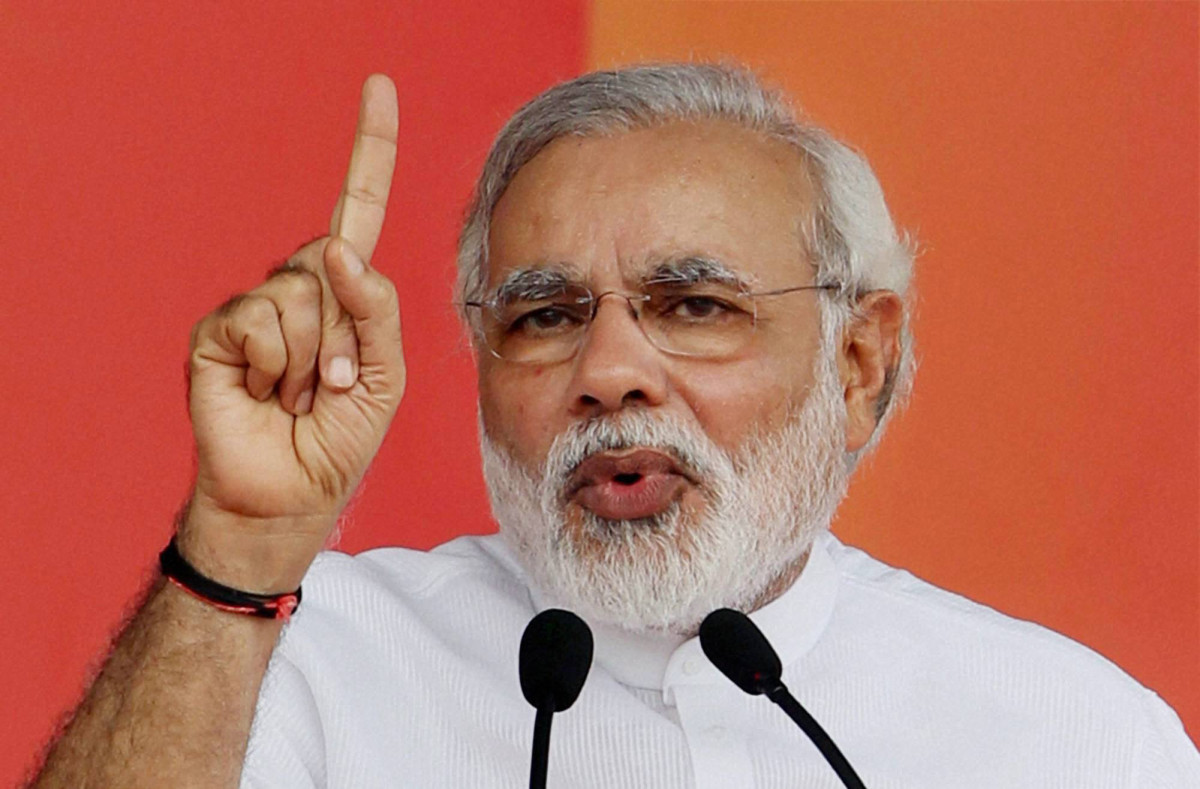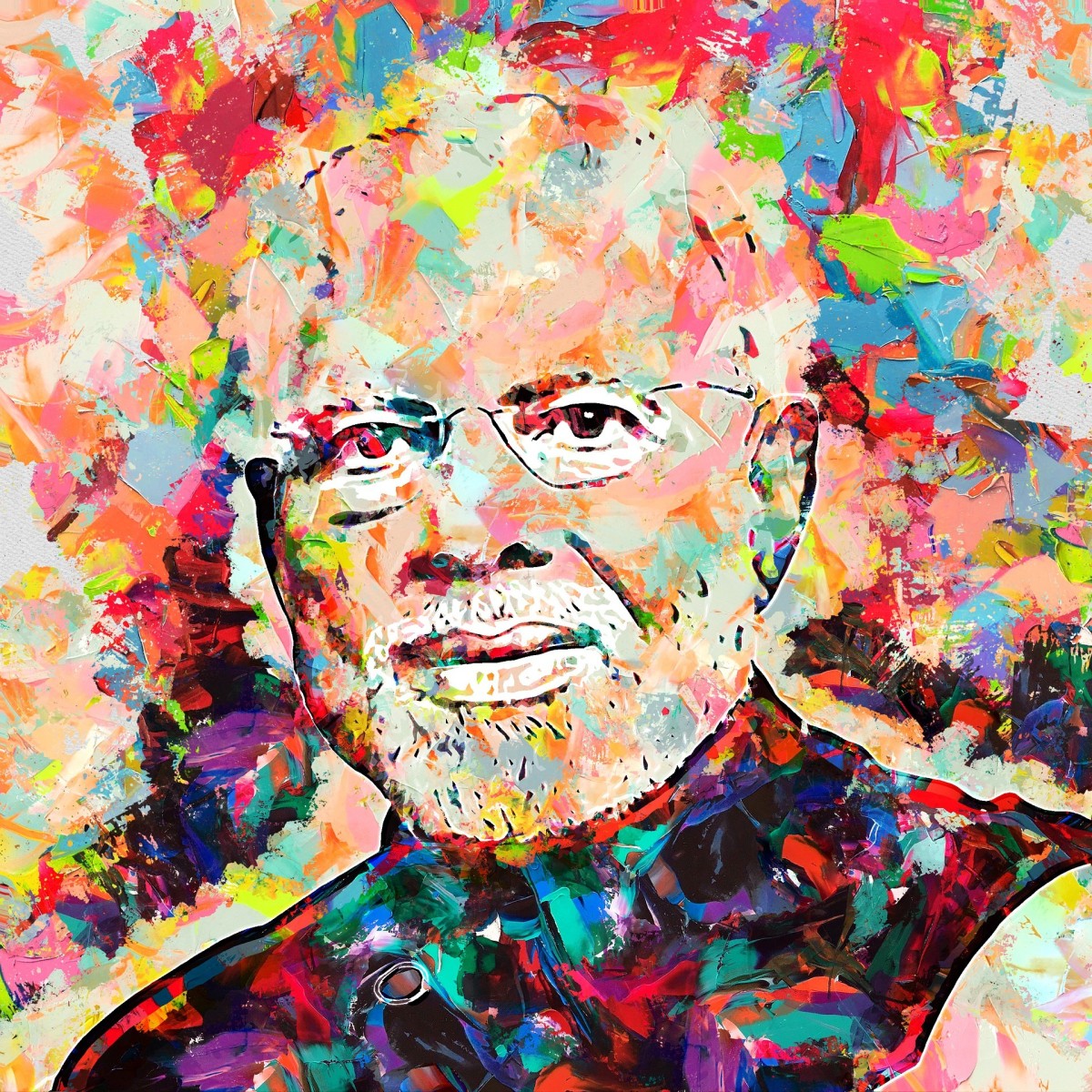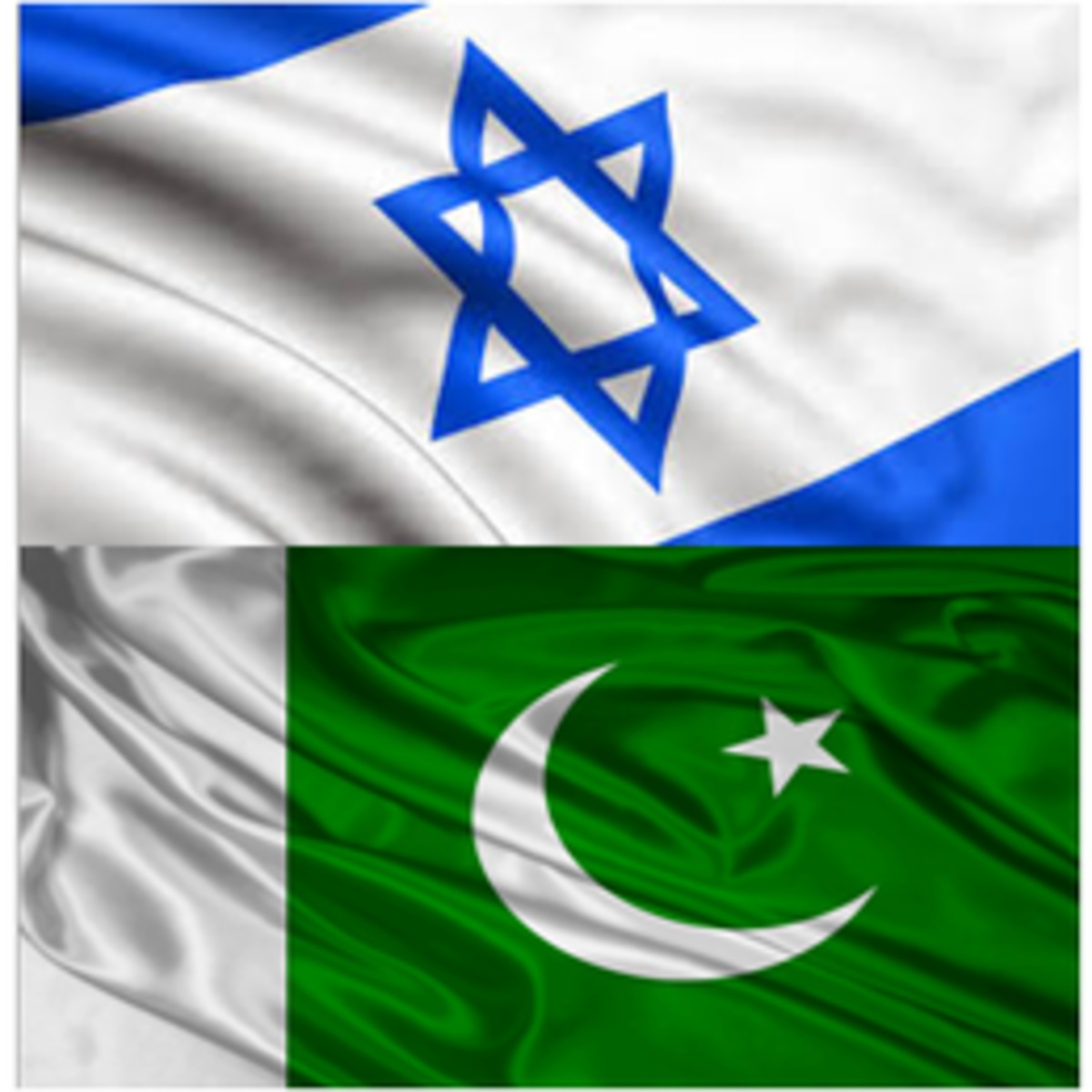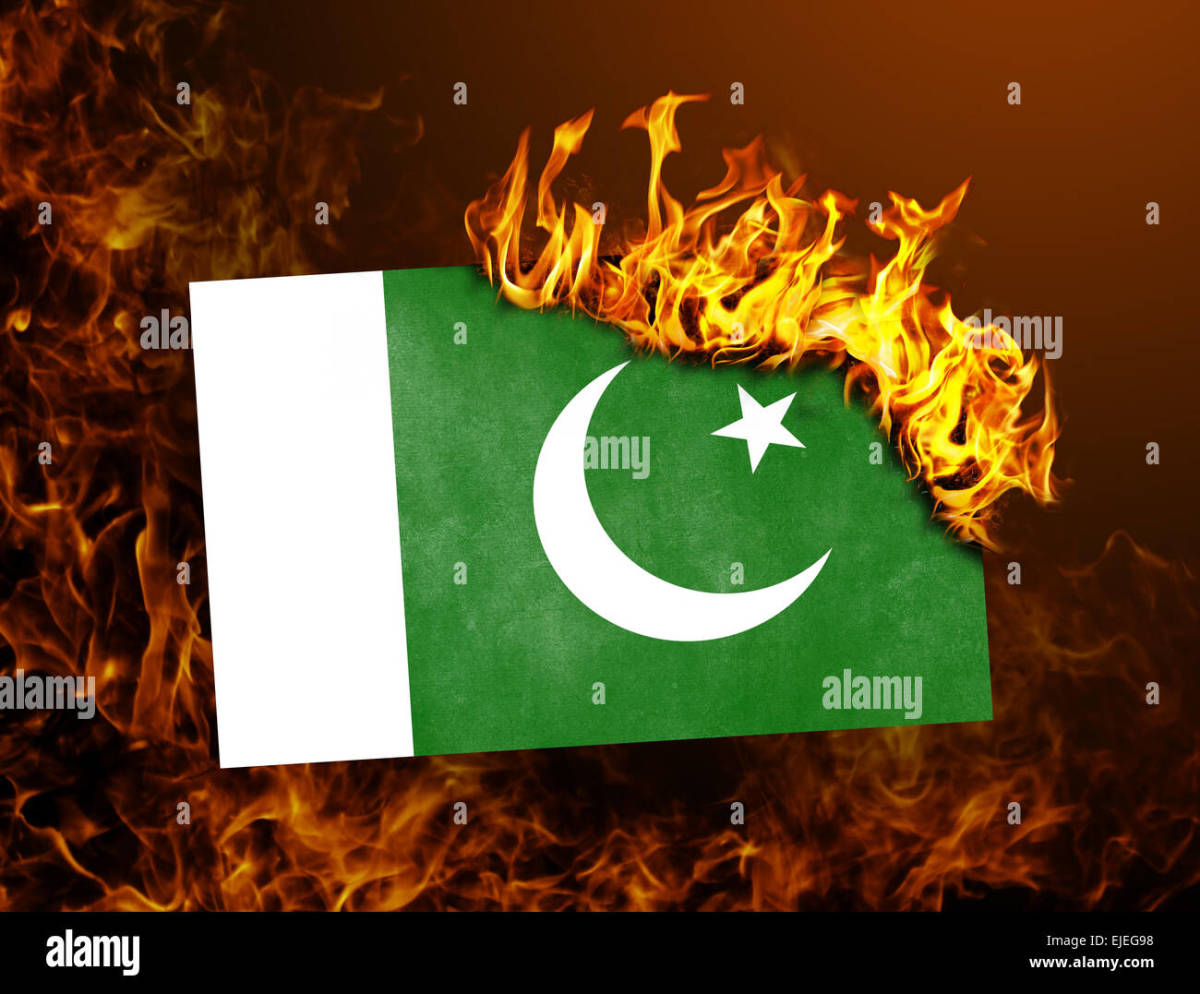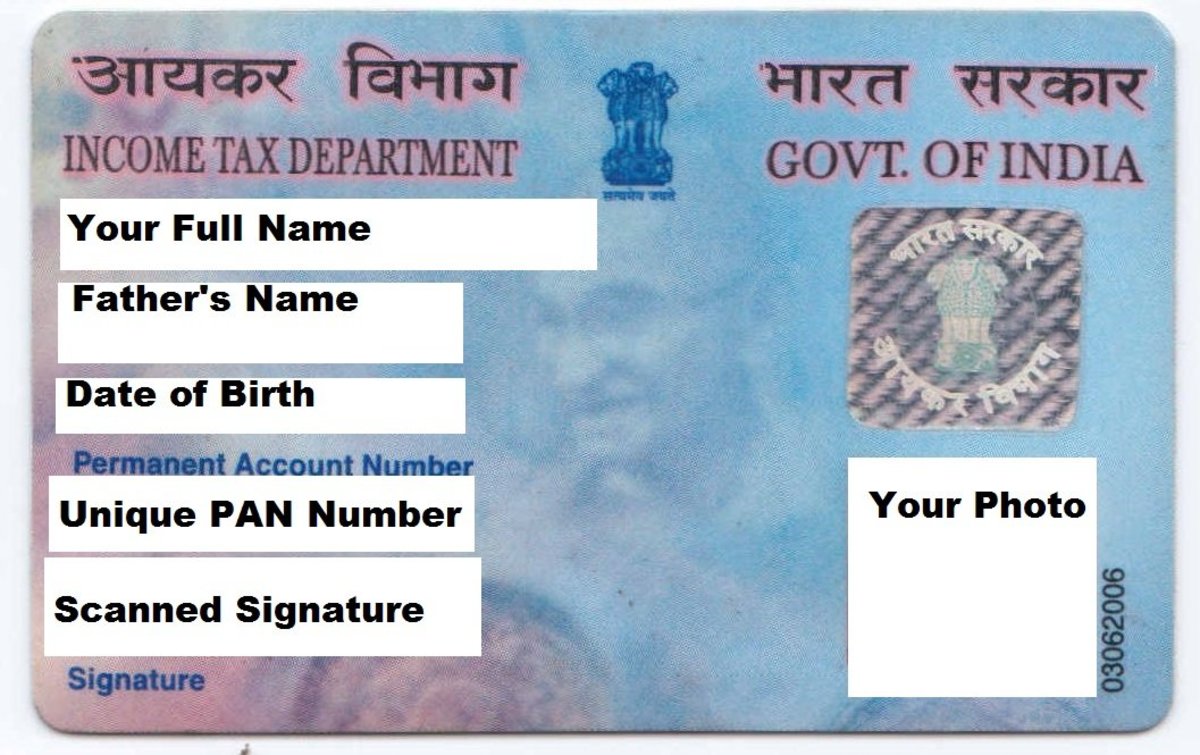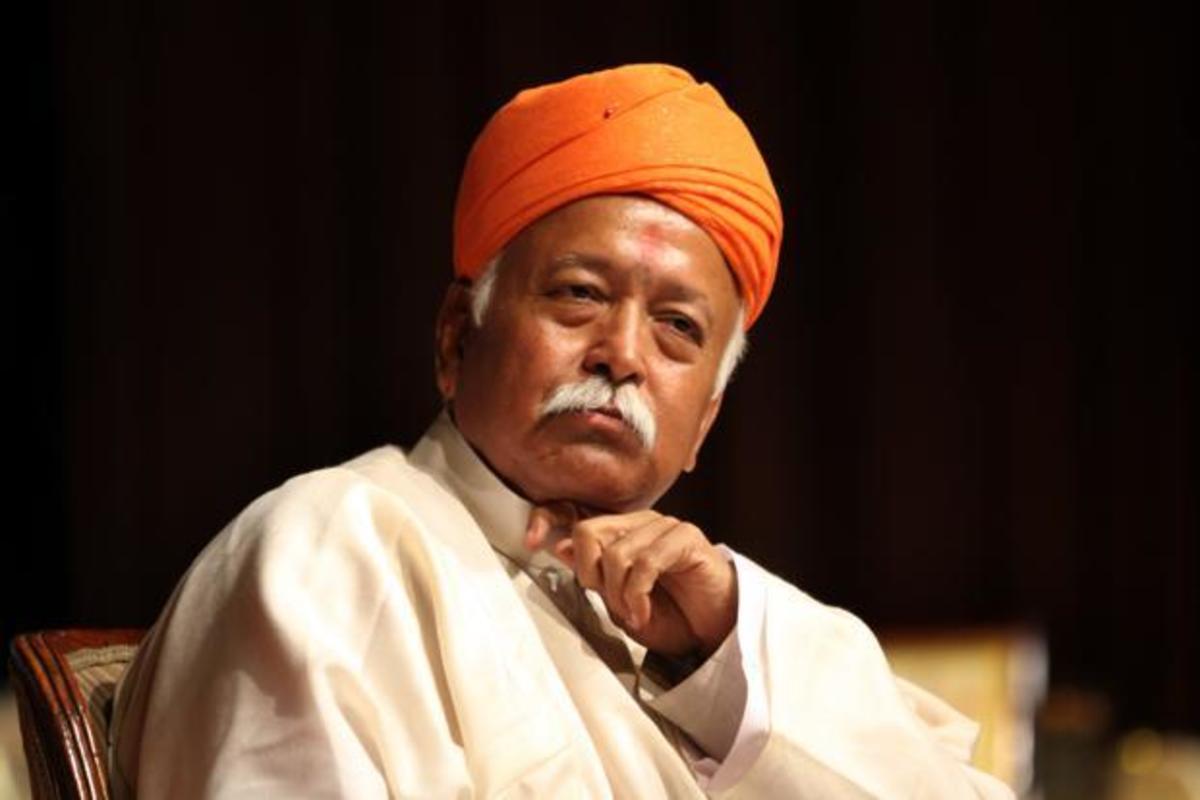Modi's Diplomatic Coup
Mr.Narendra Modi started off as India's 15th Prime Minister with a flying start! He scored a diplomatic coup by inviting the Heads of Government/Heads of State of all SAAC countries to his swearing-in ceremony. The event was a grand and solemn occasion, the biggest of its kind the country has ever witnessed, with over three thousand invitees. All the VVIP invitees attended the function, with the exception of Bangladesh, in the case of which, the Prime Minister who was on a visit to Tokyo, had deputed the Speaker of her country.
At the Swearing-In Ceremony
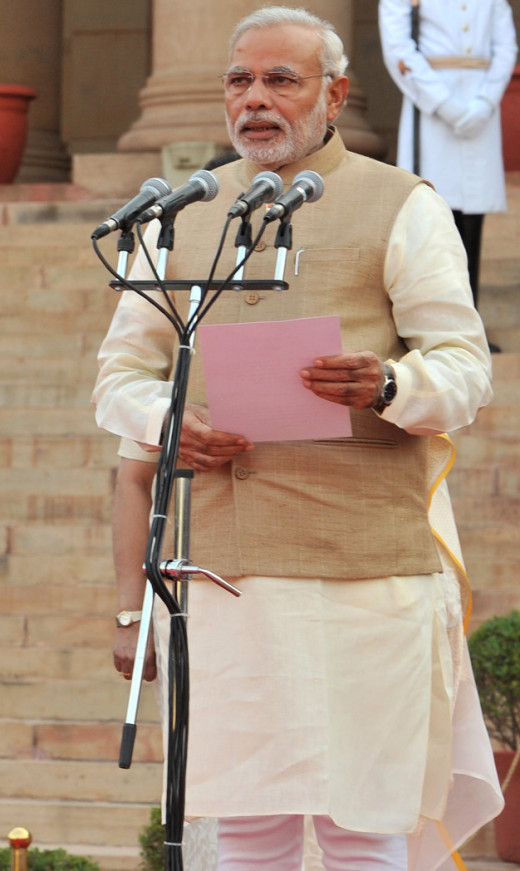
Modi's Pakistan Engagement
The toast of the occasion was the Prime Minister of Pakistan. The visit of Mr.Nawaz Sharif to India was by no means an easy or smooth one. The Pakistan Army, ISI and jehadis were vehemently against the visit. They had warned Mr.Sharif of a backlash if he decided to undertake the visit. Nonetheless, Mr.Sharif went ahead and accepted the invitation. He led a 14-member delegation. A bold step in the right direction indeed!
The Pak PM's willingness to do business with India, in the face of opposition from the hawkish elements in his country, augurs well for peace in the region. This is a positive trend which was welcomed by all right-thinking people and major political parties in both the countries.
The Famous Hand Shake
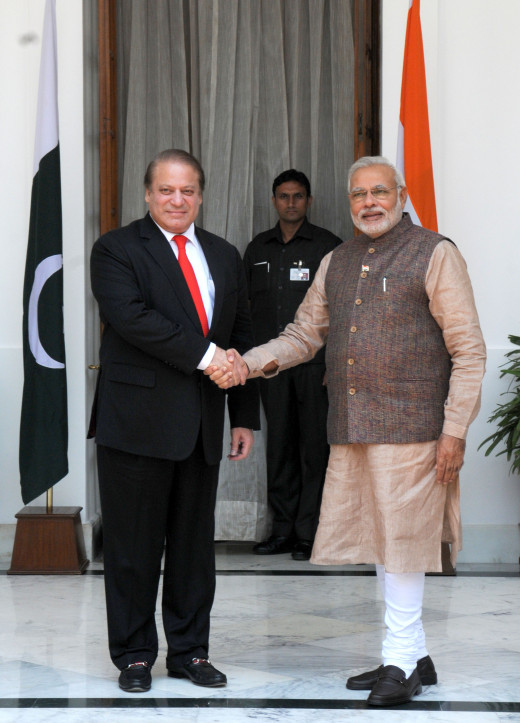
Sharif's Positivity
Mr.Sharif had expressed his willingness to work with India for the purpose of normalization of relations when he assumed office last year. In fact, one of the planks on which he had fought the election was normalization of relations with India. India has, however, been demanding, as a pre-condition for holding peace talks or negotiations for the removal of blockades in bilateral trade relations, that Pakistan extradite Dawood Ibrahim, the most wanted criminal in India and bring to justice the terrorists involved in the 26/11 bomb explosions in Mumbai. Pakistan has, however, refuted India's claim of Dawood Ibrahim's presence on its soil despite the proof provided by the latter in support of its claim. Although it started legal action against the terrorists responsible for the 26/11 bomb explosions in Mumbai, the pace of trials has been agonizingly slow. The civilian government in Pakistan could ill afford to antagonize the rival power centres of Army and ISI by bringing the terrorists to speedy justice, out of fear for its own political survival. Nor has it been able to take on the jihadi elements which have been carrying on a vicious tirade against India among a certain constituency of rabid elements, with Kashmir on their one-point agenda .
Odds Against Peace
To make matters worse, political parties in Pakistan have been raising the bugbear of the Hindu fundamentalist image of Mr.Modi and his alleged involvement in the 2002 communal violence in Gujarat. This is yet another reason for Pakistan's reluctance to do business with the new Indian government. The bogey of Mr.Modi's alleged communal leaning had received further fillip with the initial Western perception in the matter. With the US subsequently coming forward to engage Mr.Modi in the process of strengthening its relations with India, Pakistan's unfounded fears of a hostile Indian government have lost the fig leaf of legitimacy.
Talking Tough
Mr.Modi and Mr.Sharif had a 50-minute warm bilateral meeting on the day following the impressive inauguration ceremony. Mr.Modi was a picture of confidence at the meeting while Mr.Sheriff exuded positivity. The meeting was held in an atmosphere of friendship and bonhomie. It was, however, a more wanting-to-know-each-other-kind of meeting than a substantive one. Neither side had high expectations about the outcome.
While Mr.Sharif had the issues of bilateral trade and people-to-people contacts on his agenda, Mr Modi raised five points out of which four pertained to the issue of terrorism. He categorically told Mr.Sharif that export of terror by Pakistsn was not acceptable and must end and that the perpetrators of the 26/11 terror attacks in Mumbai who were hiding in Pakistan must be brought to book without any further delay; India was unhappy at the slow pace of trials against the perpetrators of violence. Mr.Sharif was also told that Hafiz Sayeed, the master mind of the terror attack, should not be allowed to go around Pakistan at will saying whatever he wanted, about India. He was further informed of India's concern about the recent militant attack on India's Consulate at Herat, Afghanistan, by Lashkar e Toiba, and its expectation that such attacks would not recur.
In a subsequent press briefing, Foreign Secretary Sujata Singh gave information about the talking points, and that too only from the Indian side and refused to explore the slippery territory of details. She successfully stone-walled questions from journalists about anything beyond the briefest of the briefs that she held. The press briefing made no journalist's heart any warmer.
On his part, PM Nawaz Shariff met the Press and read out from a written down statement, the most sensational part of which was that the meeting had been held in a warm and cordial atmosphere! If the Indian Foreign Secretary's Press Meet was a big let-down for the probing journalists, the Pakistan Prime Minister's meeting with the Press was a non-starter.
With both the sides being tight-lipped about Mr.Sharif's response to Mr.Modi's points of concern as also what were the issues, if any, which the former had raised, are a matter for conjecture. Pakistan, in any case, would be interested only in reopening of bilateral trade links and establishment of people-to-people contacts. Whether the K-word was mentioned falls in the region of speculation. It was quite likely that Mr.Sharif raised the Kashmir issue but was asked to stop cross-border terrorism before the two sides spoke any further. Upon his return to Pakistan, Mr.Sharif could make a valiant claim that he had categorically demanded that India must cooperate with Pakistan in resolving the Kashmir issue before raising its hackneyed claim of export of terrorism from across the border!
What Next
Irrespective of what the two neighbouring countries have to say about the significance of the meeting, what could Mr.Modi's government possibly do to make Pakistan to wake up to the new ground realities in the changed political scenario in India, so as to make it realize that talks are the only way to resolve the outstanding issues between the two countries?
Give Peace a Chance
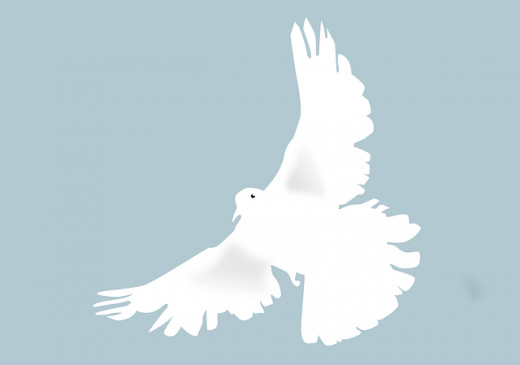
Make Peace, No War
The option of war is clearly out since neither country could afford one, given their prevailing economic conditions. While a nuclear war is unimaginable, even a conventional war would be too expensive a mistake for either side to make.
Both Mr.Modi's and Mr.Sharif's governments have their hands full, with any number of development issues crying for attention in their respective countries. If India's economy has been stagnating, the economy of Pakistan is in tatters. Between the two of them, India and Pakistan could make excellent partners in the development of the region.
Measures for Peace
By extending continued support to Mr.Sharif's civilian government, Modi government could do its bit to make the people of Pakistan become disenchanted with their Army and ISI which are standing in the way of resolution of their development problems. Any positive gesture on the part of the Indian government may be expected to be gratefully lapped up by the right-thinking and peace-loving section of the Pakistan society. It would help change the very unreal perception of Mr.Modi being a narrow-minded Hindu nationalist leader and a divisive one, currently prevailing in Pakistan. Now is the time for talking peace and mending relations rather than making aggressive postures.
Simultaneously, India should enhance its defence preparedness to be able to talk peace from a position of strength. By revamping and strengthening its armed forces, India could strike terror at the very heart of Pakistan's military apparatus.
India should take on ISI by meticulously chronicling the latter's machinations and acts of terror across the border and enlisting the support of its global partners of development in dismantling the infamous agency's terror network.
This three-pronged approach is likely to help India realize lasting peace in the region and enhance, among its other neighbouring countries, its image and reputation as a modern peace-loving country instead of a war-mongering country, with ambitions of expanding its borders.
Making Virtue out of Necessity
Pakistan is a country at war with itself, with acts of terrorism occurring in that country with alarming regularity. India should play its rightful role by helping its smaller neighbour to escape the tragic fate of implosion from within. After all, a million Pakistans would constitute a million times' more threat to peace in the region than is the case now. A strong united democratic Pakistan would be in India's interests. Kudos to Mr.Modi who has already taken the initiative to address the situation. He may be expected to follow up his diplomatic push and make a virtue out of necessity. He has all the makings of a statesman with a vision and the will to accomplish.
© 2014 Kalyanaraman Raman

